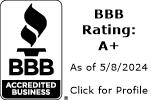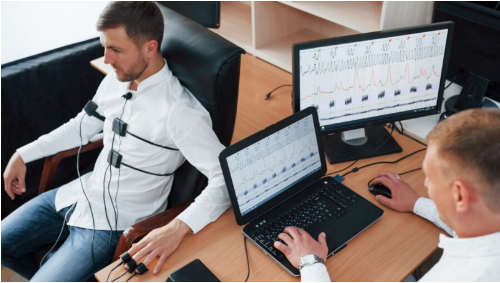Polygraph tests, more commonly known as lie detector tests, serve one critical objective – detecting deception.
Law enforcement officers use polygraph exams to eliminate criminal suspects, obtain confessions, and assess the threats posed by parolees to the general community. The tests have also found their way into the corporate landscape, often administered during pre-employment screening to verify the credibility of job applicants or while investigating work-related incidents.
As polygraph exams are intended to catch people in a lie, it may seem counterintuitive that these tests can be shrouded in scams. However, it’s surprising just how many people have been called out to present falsified polygraph reports.
The good news is that fraudulent polygraph exams always leave some hints of evidence.
This post explores the seven tips to protect yourself against polygraph scams.

1. Start With a Bribe Test
Conducting a bribe test is perhaps the most straightforward way to vouch for the reputation of a polygraph examiner. Most fraudulent polygraphers will instantly accept bribes to skew the test results in your favor.
Don’t be so apparent while conducting a bribe test, as some polygraph examiners might think you’re trying to set them up. Instead, ask if there’s ‘anything you can do to pass the test.’
Unfortunately, it won’t be long before doctored polygraph reports fail an integrity test. That underscores the significance of taking a lie detector test administered by qualified polygraphers.
2. Look Out for a Licensed Examiner
Ensure your examiner has undergone the requisite training and obtained relevant certifications from accredited schools. Ask for copies of their academic transcripts and verify their credentials on reputable polygraph accrediting bodies, such as the American Polygraph Association.
If a license is required in the state where you intend to undergo a polygraph test, remember to also establish that the polygrapher is duly licensed in that jurisdiction. More importantly, your identified polygrapher should conduct lie detector tests that adhere to the industry’s stringent regulations and best practices.
Positive review on Better Business Bureau is an added advantage.

3. Inquire About Pre-test and Post-test Interviews
Contrary to popular belief, lie detector tests do not begin or end in the examination room.
Pre-test and post-test interviews are necessary to corroborate the credibility of the in-test responses and grant the entire process the legitimacy it deserves.
Therefore, inquire if a polygraph examiner will subject you to both sets of interviews. If the answer is no, that’s your cue to look for someone else.
4. Ask About the Types of Questions to Expect
It’s imperative for polygraph examinees to understand the nature of the questions to expect during the in-test phase. That’s one of the core discussions that informs the pre-test interviews.
However, a polygraph examiner should only disclose the general framing of the queries rather than the exact questions.
If you can access a list of the questions verbatim, you’re most certainly dealing with a scammer.
5. Understand the Payment Plan
Questionable payment methods can also help clue you in on a fraudulent polygraph examiner. Legitimate examiners will require some or all of the payment prior to the exam itself, but will send a receipt for all payments made. Unscrupulous examiners will try to avoid the financial transaction to be documented.
Accredited polygraphists are transparent about their fees. Whether they prefer cash or non-cash transactions, such as online payments or bank transfers, you’re assured there will be no hidden fees.

6. Insist On a Written Report
Many fraudulent polygraphers won’t bother preparing a comprehensive lie detector report. Instead, they’ll simply inform you that you’ve passed the test. Avoid such individuals and insist on those who issue you a written report.
The document should feature both the examiner’s and the examinee’s information – names, addresses, and contact information. More importantly, it should detail the examination date, the test’s purpose, all the questions asked alongside each response, and a professional analysis of the answers.
And needless to say, polygraph reports should come at no extra fee.
7. Establish That The Results Will Undergo QCR
One of the best practices in the polygraph industry is to subject lie detector tests to a Quality Control Review (QCR) by third-party analysts, typically professional polygraphers.
This helps to verify the credibility of each polygraph test, ensuring the examiner observes all standard protocols.
Fraudulent polygraphers will be reserved about having their lie detector reports subjected to independent reviews, fearing that such analyses may smoke them out for the scam artists that they are.

Building Credibility With Genuine Polygraph Reports
While fake polygraph reports may offer an initial head-start, they do backfire soon enough. And when they do, they can render your credibility irreparably damaged.
But since many lie detector examiners still prefer the easy way out rather than playing by the book, the worst you can do is to take them at their word. Instead, use the above strategies to assess their reputation for evidence of fraud.






